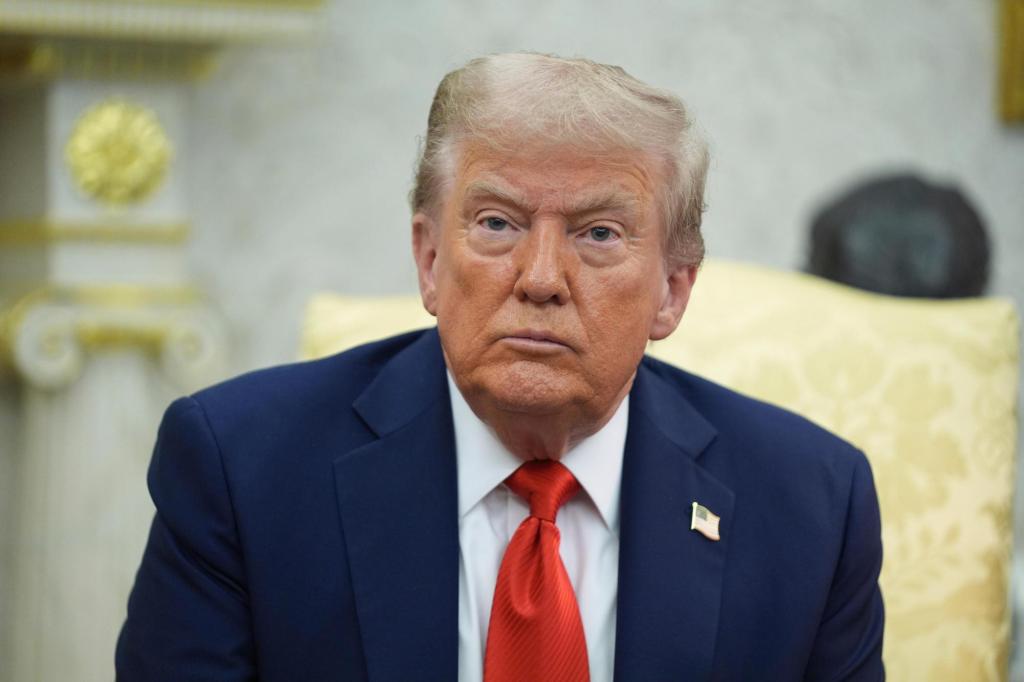
SACRAMENTO—It is long overdue, but the United States is, however awkwardly and stupidly, struggling with one of its most important historical questions: How should our nation engage with the world? We’re not arriving at reasonable answers because the president struggles to articulate any policy views with much coherence—and has a fragile ego that makes world conflicts all about him.
Trouble has obviously been brewing in Europe after Russia’s invasion of Ukraine and its continuation of a pointless war defined by the Russian regime’s willingness to engage in war crimes. President Donald Trump hosted Vladimir Putin in an Alaska summit—and figuratively and literally rolled out the red carpet. Trump doesn’t have much to show for his obsequiousness.
Since the Alaska photo op, Putin has launched the largest attacks since the war began. Last week, Russian drones entered Polish air space, with some reaching deep into its territory. Poland shot them down and invoked the North Atlantic Treaty Organization’s (NATO) Article 4: “The parties will consult together whenever, in the opinion of any of them, the territorial integrity, political independence or security of any of the parties is threatened.”
In other words, Europe is edging closer to a broader conflict, while supposed “anti-war” voices can barely manage to call out the obvious aggressor. In the midst of this dangerous situation, the only White House statement comes from the president on Truth Social: “What’s with Russia violating Poland’s airspace with drones? Here we go!” That’s not reassuring.
Trump continues to take credit for solving six or seven wars, although no one has any clue what he’s talking about. Perhaps the Nobel Peace Committee should just give him his coveted prize—anything if it makes the world’s most powerful leader take these matters seriously.
“I think it’s high time that President Trump should see that Putin is mocking him,” said Polish Foreign Minister Radoslaw Sikorski. “So I hope … we have a series of coordinated moves to make President Putin realize that this exotic project of rebuilding the Russian empire will not stand.” Hope springs eternal.
Our founders warned against entangling alliances, but as the country aged our government quickly found itself entangled. Early in the 20thcentury, progressives called for an America that, in President Woodrow Wilson’s view, promoted peace through international cooperation and “aggressive moral diplomacy.” Conservatives emphasized a return to a noninterventionist policy. But after World War II, America found itself in a struggle with an expansionist Soviet empire.
The Right then became the most ardent supporters of a hard-edged Cold War policy, with Ronald Reagan’s ascendancy encapsulating conservative thought at the time. Many of the old more isolationist conservatives viewed the communist threat as a unique challenge that required American resolve. They figured that after the Berlin Wall fell American policy would return to its roots.
Former presidential candidate Pat Buchanan’s paleo-conservative ideas have much sway within the MAGA movement. But in his 1992 “culture war” speech, even he credited Reagan for ending the Cold War. He said this of “internationalist” President George H.W. Bush: “Bush co-authored and co-signed the policies that won the Cold War. … Bush presided over the liberation of Eastern Europe and the termination of the Warsaw Pact.”
That return to an American policy less interested in global affairs never materialized, with the 9-11 attacks on the United States and then George W. Bush’s absurd war in Iraq. But many Americans tired of the United States serving as the world’s police force—and old-school conservatives and even some libertarians and progressives viewed Trump’s election as a victory for less interventionism. Some referred to him as a peace president. Yet those claims are quite the stretch.
The two Trump administrations have launched as many airstrikes at overseas targets as any other administration. Although childish and superficial, his renaming the Department of Defense as the Department of War doesn’t telegraph a love of peace. Nor does his authorized strikeon a Venezuelan boat in the Caribbean. His policies in the Middle East have amounted to little more than giving Israel the greenlight to do as it pleases. Then there were his attacks on nuclear sites in Iran and his constant threats to send troops to root out cartels in Mexico.
Whether or not you agree with these policies, they don’t adhere to any principled non-interventionist philosophy. And that takes us back to Russia and Ukraine. The problem with appeasement is that it emboldens the aggressor rather than secures lasting and just peace. No serious person is calling for American troops in Ukraine, but Trump’s insistence on blaming Ukraine and not pushing Russia for serious concessions has escalated the conflict.
Suffice it to say, but Trump hasn’t ended the war there—and certainly not within 24 hours of taking office. He’s the peace president, I suppose, but only to those who also believe he’s a moral exemplar.
Steven Greenhut is Western region director for the R Street Institute and a member of the Southern California News Group editorial board. Write to him at sgreenhut@rstreet.org.



